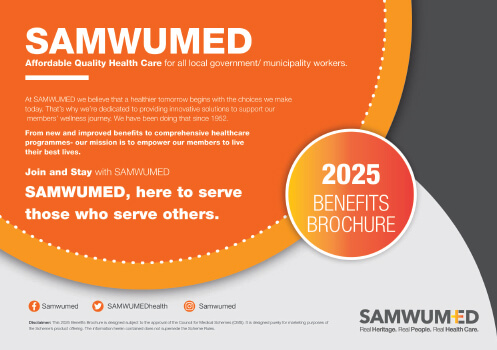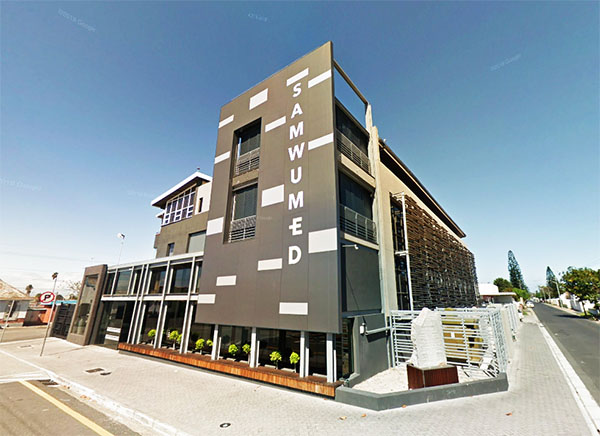In an era where healthcare costs are soaring and lifestyle-related diseases are rising, medical aid has become a crucial lifeline for individuals and families in South Africa. Whether young or old, healthy, or managing a chronic condition, having access to medical aid can make all the difference in ensuring timely and adequate healthcare.
Let’s look deeper into what medical aid entails, its significance in our lives, and its various benefits.
What is Medical Aid?
Medical aid is a service designed to help individuals and families cover the costs of healthcare services. Medical aid services can range from routine check-ups and preventive care to emergency treatments and long-term medical management. Medical aid schemes, pharmaceutical companies, and private insurers offer medical aid plans.
Medical Aid Schemes in South Africa
There are different categories of medical aid schemes in South Africa:
- Restricted—These medical aid schemes can only serve certain people or groups. They can be restricted to sector employees, professions, or industries such as banks, construction, municipalities, etc.
- Open – These schemes can service anybody or any person without restrictions.
Importance of Medical Aid
The importance of medical aid cannot be overstated, especially in an age where healthcare costs continue to escalate. With medical aid, individuals gain peace of mind knowing they have a safety net to fall back on during illness or injury. Moreover, medical aid promotes preventive care, encouraging people to seek early treatment and screenings to detect health issues before they escalate into severe conditions.
In a world where lifestyle diseases such as diabetes, heart disease, and obesity are prevalent, medical aid plays a vital role in managing these conditions effectively. It provides access to necessary medications, therapies, and interventions, enabling individuals to lead healthier and more productive lives despite their health challenges.
Bridging the Healthcare Gap
One of the most significant advantages of medical aid is its ability to bridge the healthcare gap, ensuring that individuals receive the care they need without facing financial hardship. Without medical aid, the cost of medical services can be prohibitive, leading some individuals to forgo necessary treatments or medications, which can exacerbate their health conditions and result in more significant healthcare costs in the future.
Medical aid steps in to cover a portion or all the expenses associated with hospitalisation, surgery, medication, specialist consultations, and other healthcare services, depending on the specific plan and coverage options selected. This support not only alleviates the burden on individuals and families but also contributes to better health outcomes by enabling timely access to care.
Medical Aid Benefits
Medical aid plans typically offer a range of benefits tailored to consumer’s diverse needs. These benefits may include:
- Hospitalisation Cover: This policy covers the costs of inpatient hospital stays, including room and board, surgical procedures, diagnostic tests, and medications administered during the stay.
- Out-of-Hospital Care: Covers consultations with healthcare providers, diagnostic tests, outpatient surgeries, and treatments received outside of a hospital setting.
- Medication: Medical aid helps offset the cost of medications prescribed by healthcare providers to manage day-to-day acute or chronic conditions.
- Specialist Consultations: These benefits allow beneficiaries to consult specialists such as cardiologists, oncologists, neurologists, and other medical experts for advanced diagnosis and treatment.
- Preventive Services: Includes coverage for routine check-ups, vaccinations, screenings, and wellness programs aimed at preventing illness and promoting overall health.
- Emergency Care: These benefits cover emergency medical services, ambulance transportation, and urgent care visits in the event of sudden illness or injury.
- Maternity and Newborn Care: These are benefits for prenatal care, childbirth, postnatal care, and newborn healthcare services to support expectant mothers and growing families.
Conclusion
In a world where healthcare costs are rising and the prevalence of lifestyle-related diseases is increasing, medical aid serves as a crucial safeguard for individuals and families. It provides financial protection, promotes preventive care, and bridges the healthcare gap, ensuring everyone can access the medical services they need, regardless of their financial circumstances.
By offering a range of benefits tailored to meet diverse healthcare needs, medical aid plans empower individuals to take control of their health and well-being, leading to better health outcomes and improved quality of life.
In essence, medical aid is not just about financial assistance but about providing peace of mind, security, and access to essential healthcare services when needed most. As we navigate the complexities of modern healthcare, investing in a comprehensive medical aid plan is a wise decision that can make all the difference in safeguarding our health and the health of our loved ones.
SAMWUMED Medical Scheme
The South African Municipal Workers Union Medical Scheme (SAMWUMED) is one of South Africa’s leading medical aid service providers. It is a restricted or closed medical scheme covering approximately 77 000 lives throughout South Africa. It operates within local government and associated agency employees.
The Scheme continually strives to maintain its standing as one of the most cost-effective medical aid schemes in its category without compromising the quality of its member benefits. As a result, benefits are reviewed annually and adjusted according to prevailing trends.
Click here: https://www.samwumed.org/contact/ to find out more about SAMWUMED medical aid benefits and how you can join.









